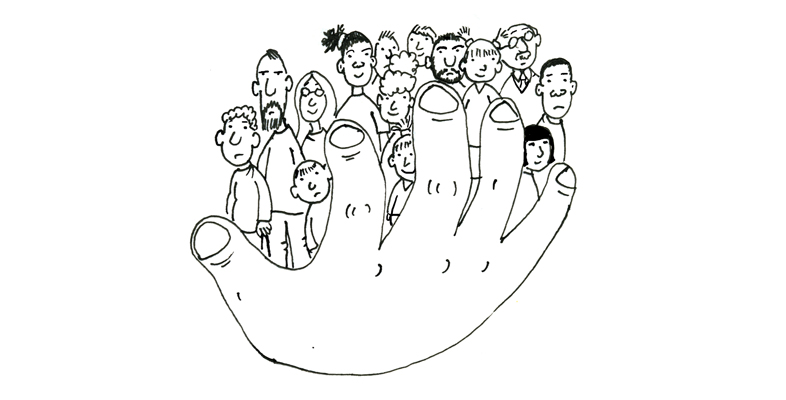Home » Course Layouts » Free Course Layout Udemy
This course, Understanding mental capacity, describes the principles and criteria underpinning the assessment of mental capacity and decision making in the UK.
0
61
English
English [CC]
- Learn basic syntax that can apply to any language.
- Learn what is a programming language and the basic concepts for beginners.
- Understand what is Javascript in it's truest form.
- Know the basic syntax of Javascript.
- Know some hidden quirks in Javascript.
Description
The course begins by looking at what mental capacity – and the lack of it – means. You will be introduced to various groups of people who are more likely to lack mental capacity, but you will also learn why it is relevant to everyone. You will look at what can be done to help someone to make a decision themselves and the principles and steps that enable people to judge, fairly, whether someone has capacity or not. You will be introduced to the legislation in the UK and will see how it supports and protects people who may lack capacity.
The course will appeal to those who support people aged 16 or over and who have to make decisions in order to address the variety of interpretation and inconsistent application of services in everyday provision. It will explain the law and how it is applied in a practical way for those making important decisions about other’s lives, such as health and social care staff, police, banks and insurance industry workers, and retailers.
Enrolling on the course will give you the opportunity to earn an Open University digital badge. Badges are not accredited by The Open University but they're a great way to demonstrate your interest in the subject and commitment to your career, and to provide evidence of continuing professional development.
Once you are signed in, you can manage your digital badges online from My OpenLearn. In addition, you can download and print your OpenLearn statement of participation - which also displays your Open University badge.

This course is endorsed by the CPD Standards Office . It can be used to provide evidence of continuing professional development but is not accredited learning. We are unable to provide formal learner verification services for participation in our open online courses, which are provided freely by The Open University as self-directed CPD.
Anyone wishing to provide evidence of their enrolment on this course is able to do so by sharing their Activity Record on their OpenLearn Profile, which is available before completion of the course and earning of the Statement of Participation
Earn this free Open University digital badge if you complete this course! The badge can be displayed, shared and downloaded as a marker of your achievement. The badge is awarded for completing the course and passing the quizzes.
Course learning outcomes
After studying this course, you should be able to:
- Understand what is meant by mental capacity
- Apply your knowledge about mental capacity to different scenarios and outline how to support and/or assess capacity for decision making in each case
- Outline what is involved in a mental capacity assessment
- Identify what you would like to do next in relation to mental capacity in your personal life and/or career.
Course content
- Introduction and guidance 00:15:00
- What is a badged course? 00:15:00
-
- Introduction 00:15:00
-
- What is mental capacity? 00:10:00
- Three points about mental capacity 00:07:00
- Mental capacity and organisations: differences and similarities 00:10:00
- Who and how many lack mental capacity? 00:15:00
- Who else is affected? 00:05:00
- Introduction 00:10:00
- Who is the decision maker? 00:05:00
- Shared decision making 00:10:00
- Who decides on your behalf? 00:10:00
- How is a decision made on behalf of someone else? 00:10:00
- Other types of decisions and supports 00:20:00
- Summary 00:10:00
- Mental capacity principles 00:05:00
- Mental capacity England and Wales 00:20:00
- Mental capacity in Scotland 00:20:00
- Mental capacity in Northern Ireland 00:20:00
- Introduction 00:10:00
- Who assesses? 00:05:00
- What about more complex situations? 00:20:00
- Introduction 00:10:00
- Children, young people and decisions 00:05:00
- Children under 16 00:20:00
- Young people aged 16 and 17 years 00:30:00
- Decisions in the Family Court and the Court of Protection 00:15:00
- Introduction 00:10:00
- Decisions, rights and responsibilities 00:05:00
- Decisions that require consent 00:10:00
- Decision making and resources 00:10:00
- Deprivation of liberty 00:15:00
- Deprivation of liberty safeguards (DoLS) 00:10:00
- Introduction 00:10:00
- Decision making and older people 00:05:00
- The concept of personhood 00:05:00
- Three common decisions 00:20:00
- Introduction 00:10:00
- How the law is changing 00:25:00
- What have you learned? 00:10:00
- What do you want to do next? 00:10:00
- Next steps 00:30:00
- Summary 00:20:00
N.A
- 5 stars0
- 4 stars0
- 3 stars0
- 2 stars0
- 1 stars0
No Reviews found for this course.










